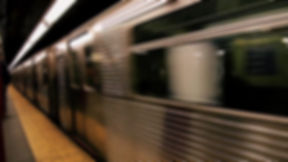





Get to know your neighbors!
T.E.A.L. Brooklyn
The Environmental Action Lab is a Brooklyn based non-profit committed to reconnecting borough residents to their bioregion and helping to build new food networks focused on the needs of the people. Through embracing agroecology principles that value community and regenerative farming, we hope to change the narrative and redefine our relationship to the land.
Victory Gardens Project
In times of crisis, food is always one of our top priorities. During WWII, local communities came together to produce food through urban gardening. Victory Gardens were urban farm plots run by local residents. These gardens were responsible for 40% of the produce consumed during WWII. Having a garden gives people food security and restores their agency back in this complex food system. COVID-19 is a pandemic that threatens the food security of people across the globe. Now more than ever, we need to reevaluate our food system. A shift back to local food production in the form of urban gardens, will give people food security and create a resilient food system that can stand the test of climate change. By redefining spaces, we intend to transform chemical intensive grass and ornamental scenery into edible landscapes that strengthen and feed communities.

Ecological Restoration
In conjunction with the Victory Gardens Project, the Environmental Action Lab is restoring local environments to a state free of human alterations. By picking up trash and other human debris, we are returning abandoned lots and spaces to a their prior state. We hope to transform these landscapes into food forests for human consumption, but we can accomplish so much more. By planting native pollinators, we'll have a drought resistant environment that attracts bees. Birds chirping in the spring is a real treat, but they also spread pollen from plant to plant. By installing bird feeders, we hope to support the local bird population. Bats are the most slept on pollinator and not only because they're nocturnal. Bats eat mosquitos and other harmful insects. They have lost much their habitat due to human development and climate change. By building bat houses, we will be encouraging the bat population to bounce back. As a result, we will hopefully see a decrease in the mosquito population and the tropical diseases they bring such as Zika, Malaria and the West Nile Virus




